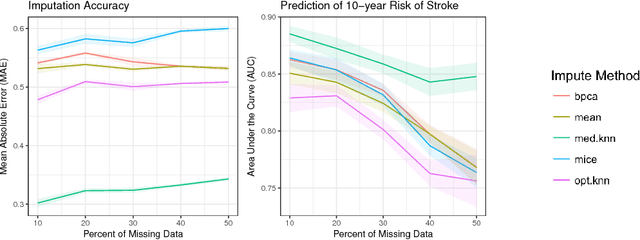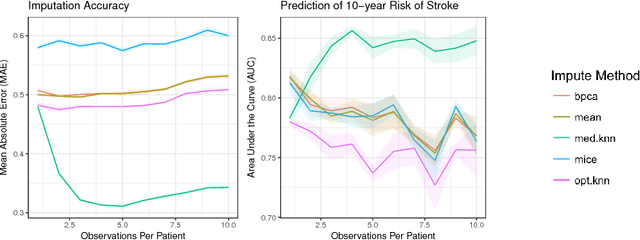Colin Pawlowski
Imputation of Clinical Covariates in Time Series
Dec 02, 2018

Abstract:Missing data is a common problem in real-world settings and particularly relevant in healthcare applications where researchers use Electronic Health Records (EHR) and results of observational studies to apply analytics methods. This issue becomes even more prominent for longitudinal data sets, where multiple instances of the same individual correspond to different observations in time. Standard imputation methods do not take into account patient specific information incorporated in multivariate panel data. We introduce the novel imputation algorithm MedImpute that addresses this problem, extending the flexible framework of OptImpute suggested by Bertsimas et al. (2018). Our algorithm provides imputations for data sets with missing continuous and categorical features, and we present the formulation and implement scalable first-order methods for a $K$-NN model. We test the performance of our algorithm on longitudinal data from the Framingham Heart Study when data are missing completely at random (MCAR). We demonstrate that MedImpute leads to significant improvements in both imputation accuracy and downstream model AUC compared to state-of-the-art methods.
 Add to Chrome
Add to Chrome Add to Firefox
Add to Firefox Add to Edge
Add to Edge